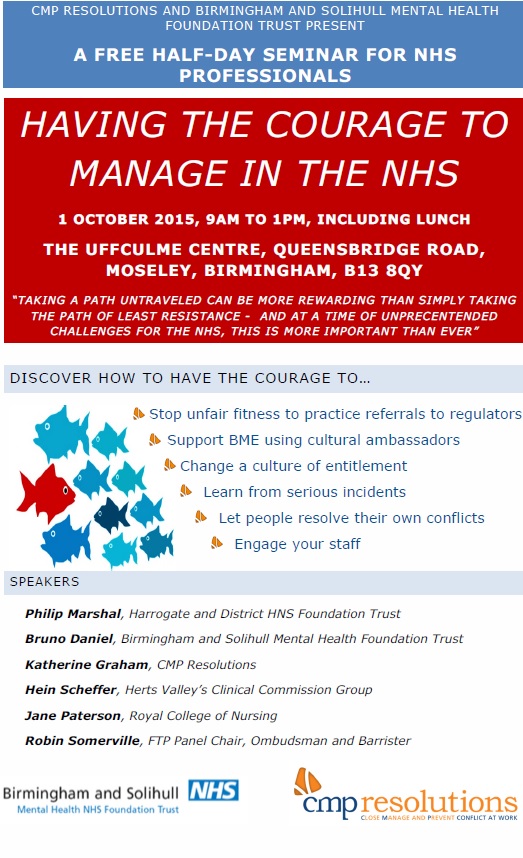Changing a culture of entitlement
Learning & Development 28th August 2015
Entitlement – an unrealistic, unmerited or inappropriate expectation of favourable conditions and favorable treatment from others. And how infuriating it is!
From a conflict management perspective, what’s happening is that a person is confusing a ‘want’ or interest, with a need – a fundamental unalterable need shared by all humans. So what you hear is a defense of their position and their wants; and descriptions of their feelings as though they are “Facts”.
Entitlement in the workplace is difficult to deal with
When we hear about “entitlement” at work, it generally means employees who:
- Complain – about big and little things – and never offer solutions
- Believe they deserve the compensation and benefits they receive, and don’t perceive or see a need to link performance to rewards.
- Have an unrealistic sense of their rights to their jobs, viewing their role as something they
But people want to feel there is a purpose to their lives – and to their work. So entitlement hurts those who feel it, themselves; it leads to dependence and makes people lose confidence in their own ability.
So the way to get people out of the entitlement mentality is to take away their entitlements and require them to participate and take responsibility.
As Abraham Lincoln put it, “You cannot help people permanently by doing for them, what they could and should do for themselves.”
Possible solutions you can adopt
Transparency
Be open and honest about where your organisation is, what its challenges are, what it is working toward. Allow real conversation to take place that lets people talk through their beliefs, fears and needs, and involves them in the development of not only the organisation’s values and behavioral standards, but also their own KPIs and reward scheme.
Review your rewards scheme
People routinely report that employers do a poor job linking pay and performance. So can an organisation really blame its employees for failing to see the tie between individual contribution (or the lack of it) and pay, if the principles are unclear, the practice is inconsistent, and no-one in living memory has ever been penalized for poor performance?
So ensure your performance management system is simple, that it has concrete and objective rules for differentiating performance levels, and that it directs reward distribution in appropriate proportions. And train and support your managers, who often lack the time, energy or courage to use the reward system to reinforce strong performers and send a message to others. Tell employees who are seen as having entitlement issues or who are unaware of what they need to do to improve – many managers are afraid of this type of difficult conversation.
Look beyond extrinsic financial rewards
Non-financial rewards would include opportunity for achievement, fulfilling work, recognition and growth, and these connect more strongly with employee engagement than do rewards like pay and bonuses. Yet far from all organisations make use of recognition and other non-monetary rewards to encourage good performance.
Hold people to account
Better performers want to be held accountable. They also want their peers to be held accountable and to be penalised if they’re not doing their job correctly. When you create a high level of accountability in a positive fashion, people can relax, knowing that ‘management’ is serious about its values and will tackle the underperformers, and reward the strong performers.
Changing this culture is not easy – and for long-standing public-facing employers like the NHS it’s particularly difficult
Harrogate and District NHS Foundation Trust took a bold step when it changed its pay progression policy and process, and required every member of staff to apply for their increment on an annual basis. The results were incredibly positive, and helped with the wider goal of building on already very good staff engagement.
The Trust’s programme of change won them the HPMA “Courage to Manage” Award in June 2015. And if they can do it, so can you.
